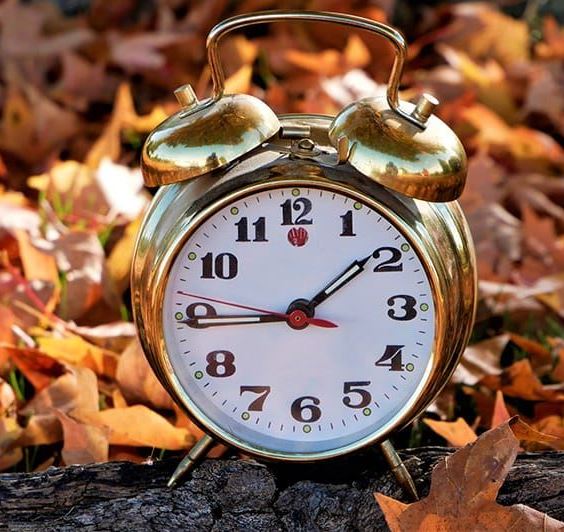Fall is here, which means it’s time to fall back an hour.
Be sure to set your clocks back one hour and enjoy that extra 60 minutes of sleep!
As sweet as an extra hour of sleep can be, the end of daylight saving time can affect your body for over a week. Fortunately, falling back an hour is less harsh on your body than springing forward — so the real internal adjustment comes in March.
But falling back an hour can still cause disruptions. Your internal body clock is thrown off — and so are your sleeping patterns and eating habits. These disruptions lead to lower energy and a loss in productivity.
These issues are caused by the bi-annual disruption of your body’s circadian rhythm, which regulates many aspects of life — like the times in the day when you feel drowsy or alert. The abrupt time change (it literally happens overnight) changes the natural patterns of light and dark that your brain has gotten used to.
3 Health Tips for Adjusting to the Fall Time Change
The end of daylight saving time forces you to do more than just turn back your clocks. It forces your brain to adjust to the new patterns of light and dark. And this can cause a negative ripple effect, messing with your whole body’s circadian rhythm and leading to insomnia or unexpected sleepy spells throughout the day.
Follow these three tips to help you avoid the negative effects of the end of daylight saving time:
- Set a consistent sleep schedule. In the days leading up to the fall time change, adjust your sleep schedule. Start going to bed and waking up 10 to 15 minutes earlier each day. This eases your body into the new schedule slowly rather than forcing a harsh change on Sunday.
- Create a buffer around bedtime. Insomnia is often associated with daylight saving time’s end. Turn off electronics, don’t drink caffeine and don’t exercise close to bedtime. These external factors can make insomnia even worse.
- Boost your energy naturally. Twenty to 30 minutes of brisk walking at mid-day may help as you find yourself hitting a wall in the morning or in the middle of your workday. Eat meals at the new time according to the clock, and don’t forget to drink your daily dose of water.
Your body should adjust to the time change in about a week — faster if you follow these tips. If your insomnia and sleep issues continue, visit the West Lakes Sleep Center or call 515.875.9555 to schedule an appointment.
